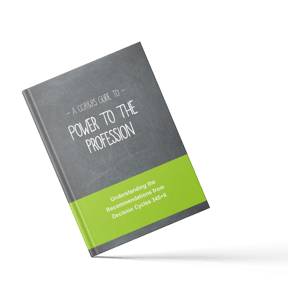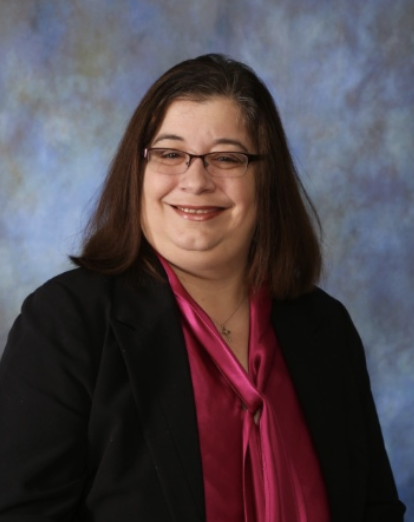The Power to the Profession task force recently released the Decision Cycles 345 + 6 draft document. See a high-level overview of the decision cycles by downloading our fourth e-book in our Power to the Profession series: Understanding the Recommendations from Decision Cycles 345 + 6. The goal of these Decision Cycles is to establish the very first unified framework of the early childhood education workforce that defines the professional preparation, responsibilities, scope of practice, specialization, and compensation needed to drive policy, funding, and systems change in our field.
 Key questions asked and answered in these Decision Cycles include:
Key questions asked and answered in these Decision Cycles include:
- How should the designations within the profession be structured?
- What preparation programs should be endorsed and supported?
- Should the early childhood professions have specializations? If so, how should the specializations be structured?
- What does comparable compensation look like in this profession?
Child Care Resource and Referral (CCR&R) agencies play an important role in the preparation of the early childhood profession. CCR&R agencies can review these recommendations now and strategically prepare for what their future role.
Here are three ideas for how you can strategically prepare your agency:
Idea 1: CCR&R Staffing Considerations
Analyze your staff’s education levels. Do your professional development, training and coaching staff meet the educational requirements that are being recommended for the profession? Do you have staff who qualify to offer credit-based professional development?
Idea 2: Strategically Review your Training and Professional Development Offerings and Partnerships
First, make sure that you have partnerships and articulation agreements in place with your local community colleges or four-year institutions to offer credit-based options for your training and coaching.
Next, take a look at your trainings and professional development schedule. Ensure that your current training schedule for early childhood educators offers different levels of professional development to meet the diverse needs of the future ECE I, ECE II and ECE III professionals. Offer professional development that cover the birth through 3rd-grade continuum. Think about what will you need to change to offer more advance professional development offerings for educators that have degrees.
Idea 3: Be an Advocate for the Profession & Stay Engaged
As a CCR&R, you are in a good position to convene discussions around Power to the Profession within your community with providers, businesses and community partners. Feel free to use the Power to the Profession Frequently Asked Questions document to help you with these conversations. After these conversations, join with your partners to develop a community wide strategic plan around implementing the Power to the Profession recommendations. You can review this slide presentation which includes an overview of the Decision Cycles 345+6 to help you think about your plan.
Finally, don't forget to bring your staff together to discuss the new recommendations and plan for the implementation. You can use this handy comparison chart to learn about the content revision on Decision Cycles 345.
Now that the Decision Cycle Draft 345+6 have been released, act now. Take these steps:
- Read the draft.
- Share the draft with others.
- Complete the survey by March 22, 2019.






